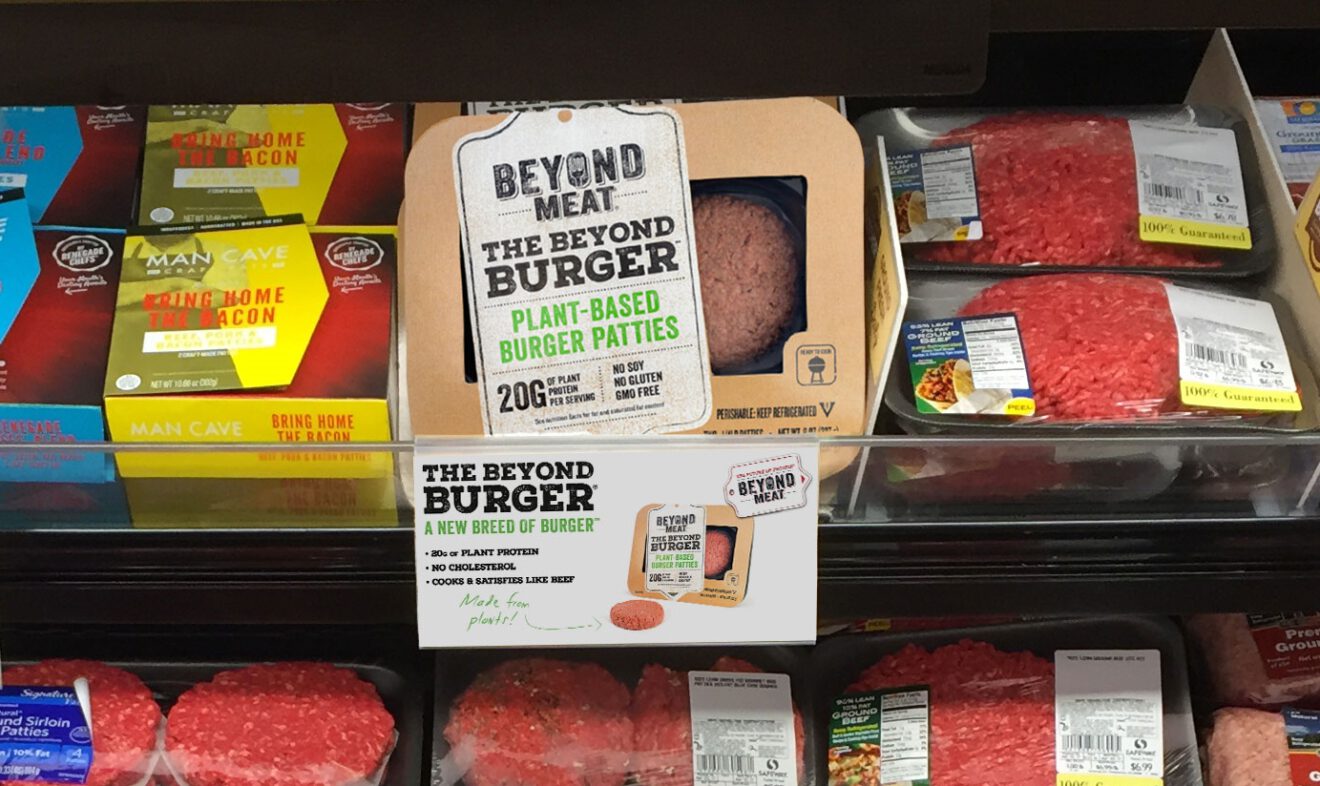Consumers are shifting away from strictly carnivorous diets, increasingly expanding into plant-based, flexitarian, vegetarian and omnivorous lifestyles. As Americans cut down on their meat intake, several companies are leading the charge in helping to ease that transition, ensuring that consumers have access to delicious foods while still cutting down on the amount of meat they eat.
Product launches worldwide featuring plant-based claims rose 63% between 2011 and 2015, and some 38% of US consumers spend at least one day a week eating meat-free, said Innova Market Insights’ Kara Nielsen during the Institute of Food Technologists’ recent annual meeting. Further, one out of every ten millennial consumers self-identifies as vegetarian or vegan, and with $1 trillion in buying power, millennials are responsible for a large slice of the American food purchasing landscape, Kate Good writes.
Food businesses respond with new products
Technological innovations among food entrepreneurs have helped create new offerings for those who want meatless options, and grocers are starting to expand their plant-based portfolios to cater to this growing trend. For instance, The Beyond Burger, a plant-based meat alternative from Beyond Meat, has made its way to the meat case at several supermarket chains.
“With the Beyond Burger, we set a clear precedent that it was to be sold in the meat case, and we work directly with meat buyers to make that happen,” said Will Schafer, Beyond Meat’s vice president of marketing. “This summer, we’ve seen the country’s two biggest grocery chains, Kroger and Albertsons, come on board to carry The Beyond Burger in the meat case. This signals a major shift in acceptance, as well as increased demand among the mainstream for plant-based options.”
Adding these grocers and other outlets allowed Beyond Meat to boost its distribution footprint eight-fold this summer, Schafer said. Between retail and foodservice, The Beyond Burger is now available at more than 3,200 stores and restaurants nationwide. “This summer, we launched at our first national burger concept, BurgerFi, as well as at a trend-setting better-burger outfit based in Chicago, Epic Burger. In the first 20 days, Epic Burger reported selling more than 3,700 burgers across their eight locations.”
Similarities to meat attract flexitarians
Consumers pursuing flexitarian diets often find the transition toward plant-based foods more smooth when they can find products that aren’t too different from traditional meat, and The Beyond Burger is among the foods that consumers are comparing favorably to animal-based protein in taste and texture.
“When creating The Beyond Burger, we developed a patented process that creates the dense structure and juicy chew of meat by essentially braiding together the same core building blocks of meat, sourced from plant-based ingredients,” Schafer said. “Our goal is to create products that honor the tradition of meat and meat-eating occasions, allowing consumers to continue eating the things they love, but with the added health and wellness benefits of plant-based meat.”
Removing meat from dinner plates not only caters to a growing interest in plant-based foods, but also helps the planet, Schafer added. “By 2050, Earth’s global population is projected to swell to 20 billion. Meeting that growing population’s demand for protein in the form of meat will be a major challenge. We set out to remove the animal from the protein production chain. By doing so, you can powerfully address four major global issues attributable to livestock: Human health, climate change, natural resource constraints and animal welfare.”
__________________________________________________
If you enjoyed this article, join SmartBrief’s email list for more stories about the food and beverage industry. We offer 20 newsletters covering the industry from restaurants to food manufacturing.
